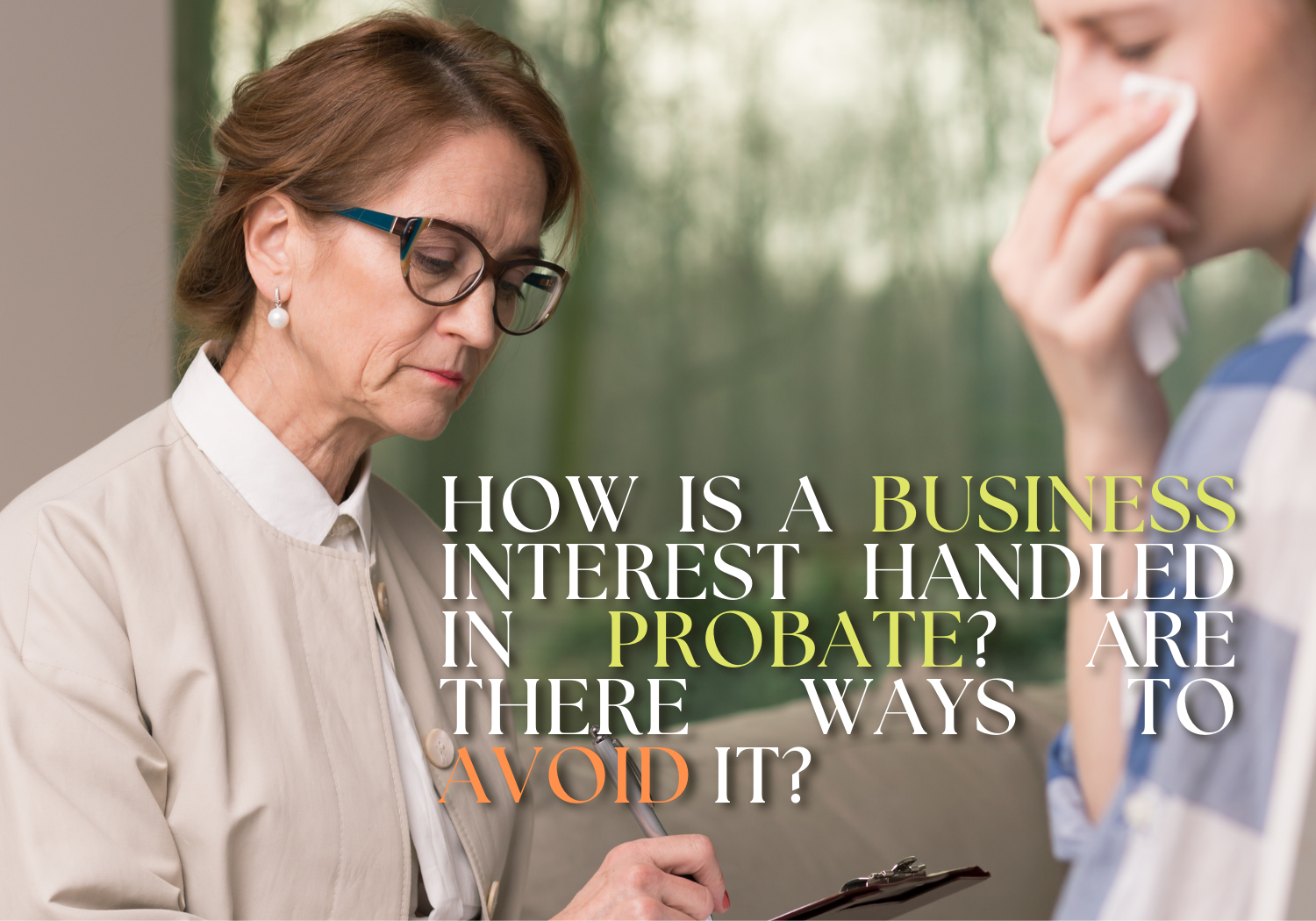Why do I want to avoid Probate?
A lot of people think of the term “probate” with fear, disdain, confusion or just frustration. While probate can be helpful, there are reasons many people actually try to avoid it. Why? There are a number of reasons:
1. It Takes Time... A Lot of Time!
Probate requires a lot of documentation, filings, and the court’s time to review. It can take months, sometimes even years, to wrap up. That means you (or your loved ones) may have to wait a long time before you can use or benefit from the deceased person’s belongings.
2. It Can Be Expensive
Think about that cool toy or gadget you've been saving up for. Now, imagine having to give a portion of your saved money away, just because you had to pay a “fee” to access your own savings. That's what probate can sometimes feel like for families. There are court costs, lawyer fees, and other expenses. The longer probate goes on, the more it can cost, and this money comes out of the deceased person's assets. So, there's less left for the heirs, the people who are meant to inherit.
3. Lack of Privacy
Probate is a public process - it is a public record! That means anyone who asks the Court for the information can see what assets the deceased person had, who owes them money, and who gets what. This lack of privacy can be uncomfortable for the family.
4. Emotional Stress
Losing someone is already a tough time. Emotions run high, and families are grieving. Add into that emotional stress, the chance to obtain moderate or large sums of money. Keep adding to that the stress the long, drawn-out court process, where family members might have disagreements or misunderstandings. It's like pouring salt on a wound and adding vinegar to boot! Avoiding probate can make this difficult time a bit easier for families.
5. Potential for Conflict
You may have fought with a sibling as a kid over who got more ice cream. Now, think bigger scale. In probate, disagreements can arise about the intent of the decedent, how the will or how assets should be shared. This can lead to family disputes, which not only prolong the process but can also strain relationships.
6. Limited Control
When someone writes a will, they're expressing their wishes for their belongings after they're gone. The problem here is if there is a question about their wishes, they are dead - you can’t ask them what the meant! This can limit how these wishes are carried out because the court gets the final say. Avoiding probate can provide more control and ensure that things are done exactly as the deceased wanted.
7. Risk of an Outdated System
Laws and processes are like old video games; sometimes, they need updates! The probate system can be outdated in some places, making it less efficient and not always suited to modern challenges. For example, Ohio requires all wills to have wet-ink signatures (no e-sign!) and most documents filed with the courts are filed by PAPER!
So, How Can People Avoid Probate?
Now that we know why it might be a good idea to avoid probate, let's touch on how people can do that:
- Trusts: This is like a special box where people can keep their assets. When they pass away, the contents of this box are given to their chosen people without going through probate.
- Joint Ownership: Imagine a shared toy. If one friend moves away, the other automatically gets the toy, right? In the adult world, if assets like a house or bank account are jointly owned, the surviving owner gets the asset without probate.
- Beneficiary Designations: For certain assets, like life insurance, checking accounts, or retirement accounts, people can name a beneficiary – the person who will receive the asset. This skips the probate process.
Probate, while helpful in some cases, can be a long, costly, and emotionally taxing process. By understanding the reasons to avoid it and the strategies to do so, families can save time, money, and potential heartache.



